Abstract
Since 1960, smallpox has been introduced into 10 European countries on 28 separate occasions. Most commonly, the index case was infected in Asia and returned to Europe by air during the period December—May. Subsequent cases have occurred mainly among persons exposed by direct, face-to-face, contact in the household or hospital. Medical and hospital personnel, patients and visitors constituted approximately half of all cases in these outbreaks.
In a recent outbreak in Meschede, Federal Republic of Germany, detailed epidemiological studies have clearly indicated that 17 of the cases were infected by virus particles disseminated by air over a considerable distance within a single hospital building. Several features believed to be of importance in this unusual pattern of transmission were common to a similar outbreak in the Federal Republic of Germany in 1961 in which airborne transmission also occurred. These features include a source case with extensive rash and cough, low relative humidity in the hospital and air currents which caused rapid dissemination of the virus. While airborne transmission of this sort is rarely observed in smallpox outbreak, it is important to recognize that it may occur under certain circumstances.
Proper vaccination of travellers prior to their departure from their native countries and a regular programme for vaccination of medical and hospital personnel could have prevented at least half of the cases which occurred in Europe during the past decade. Although progress in the global smallpox eradication programme has been accompanied by a decreased frequency of importations into Europe, no country should relax its vigilance until smallpox has been eliminated everywhere.
Full text
PDF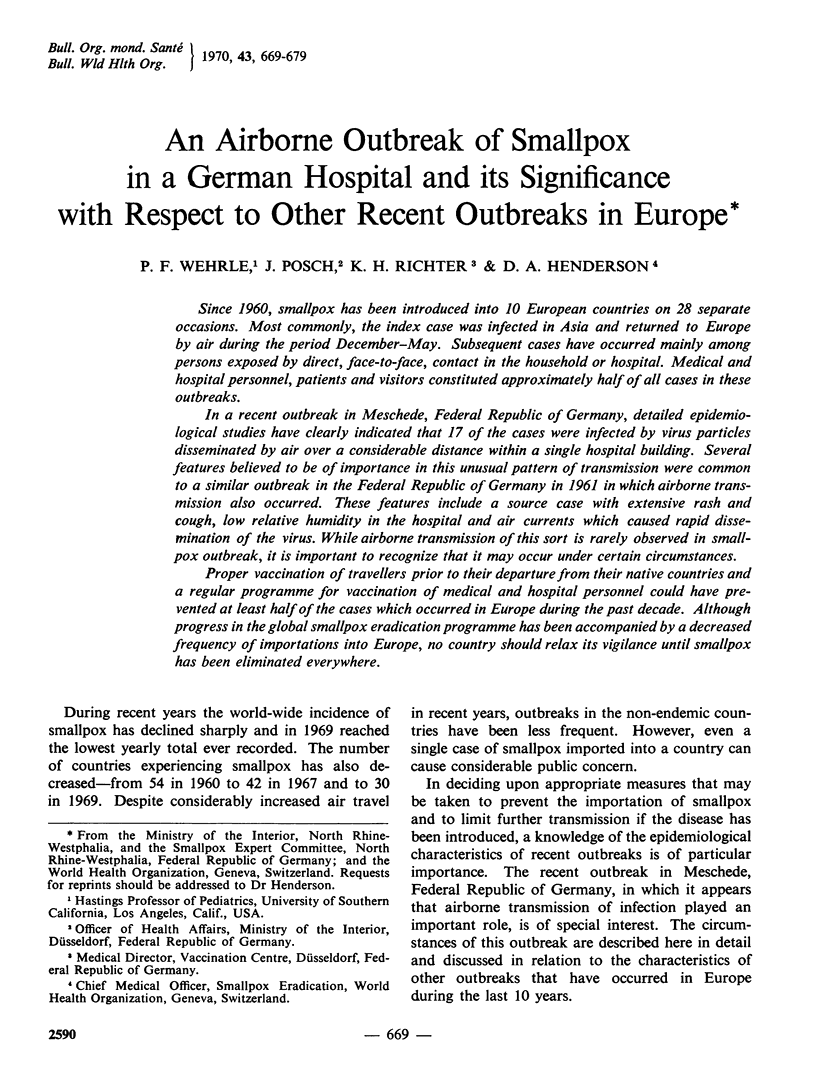
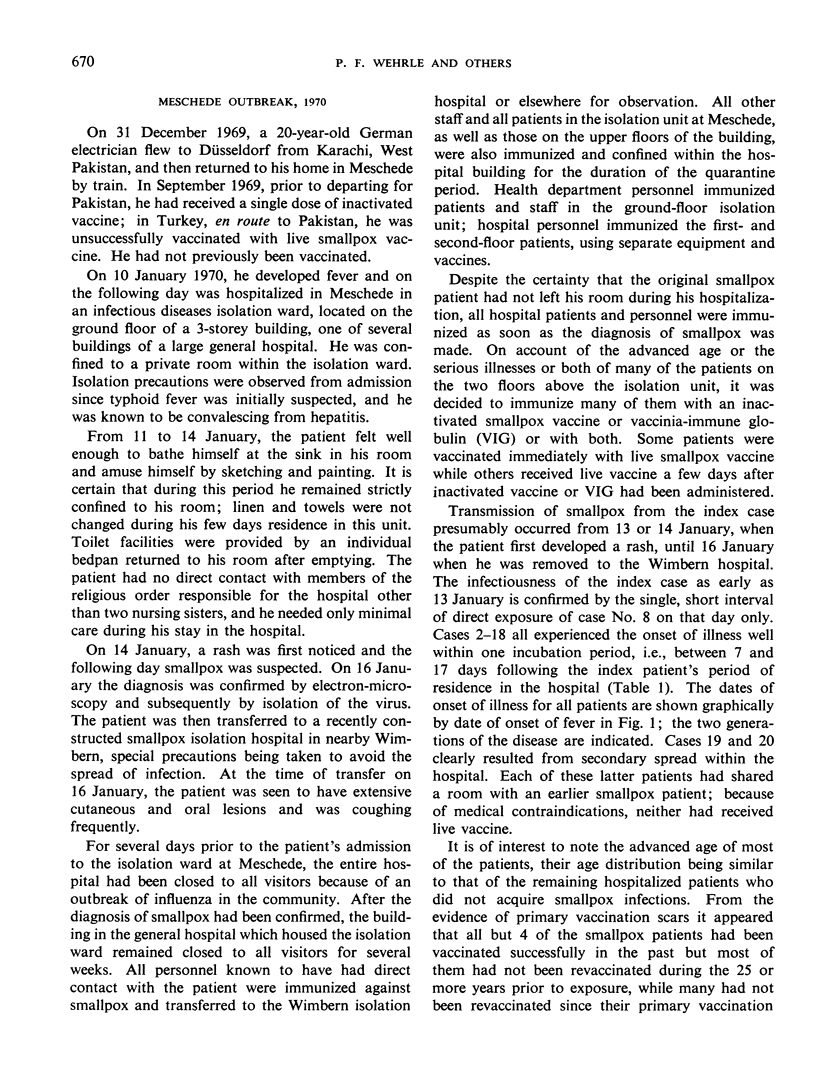
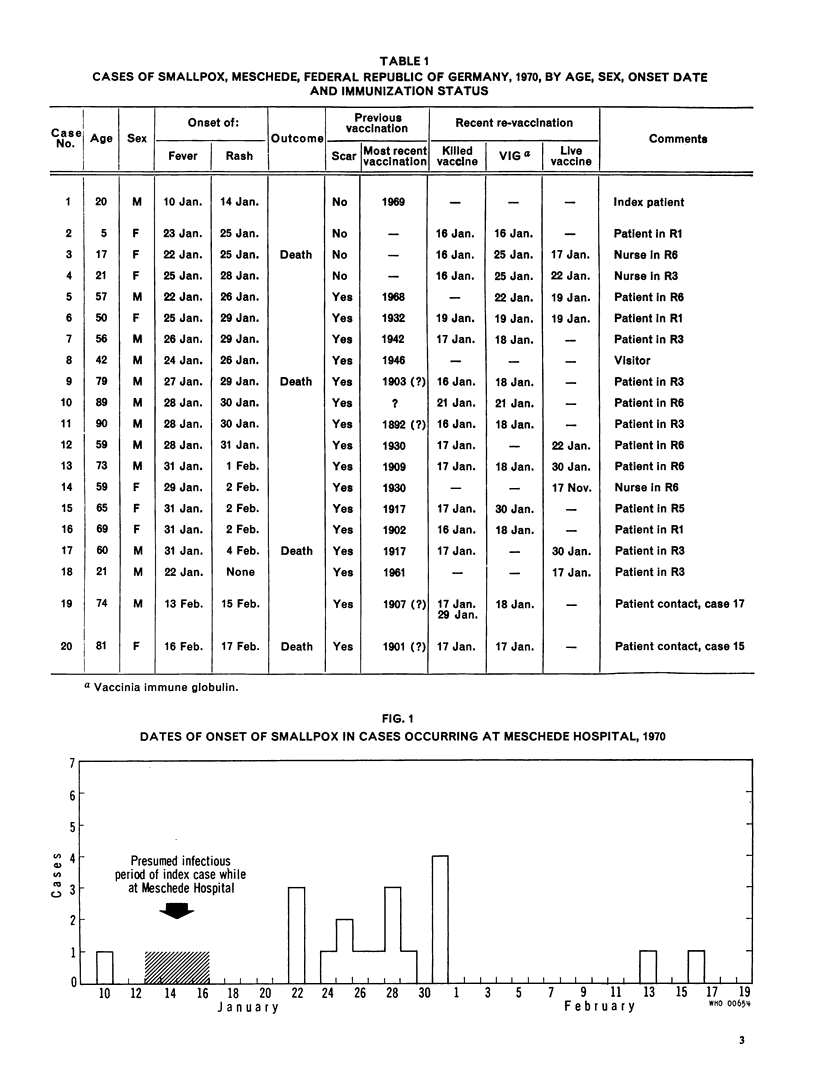
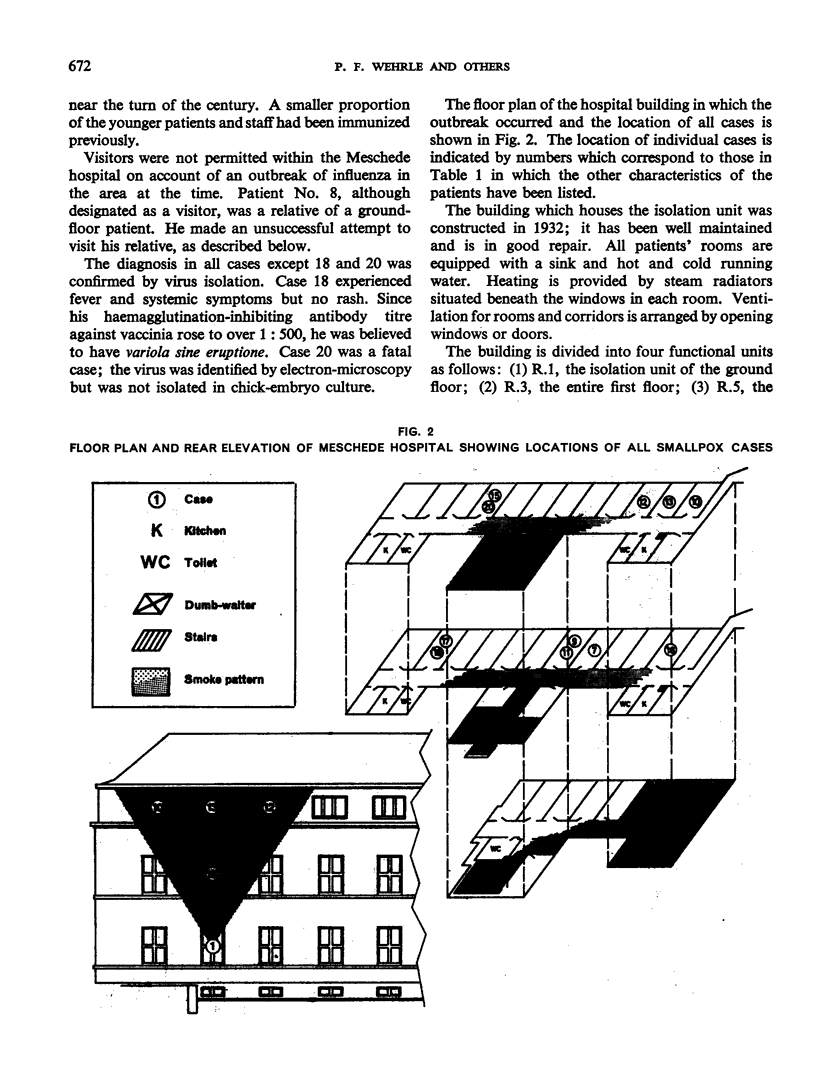
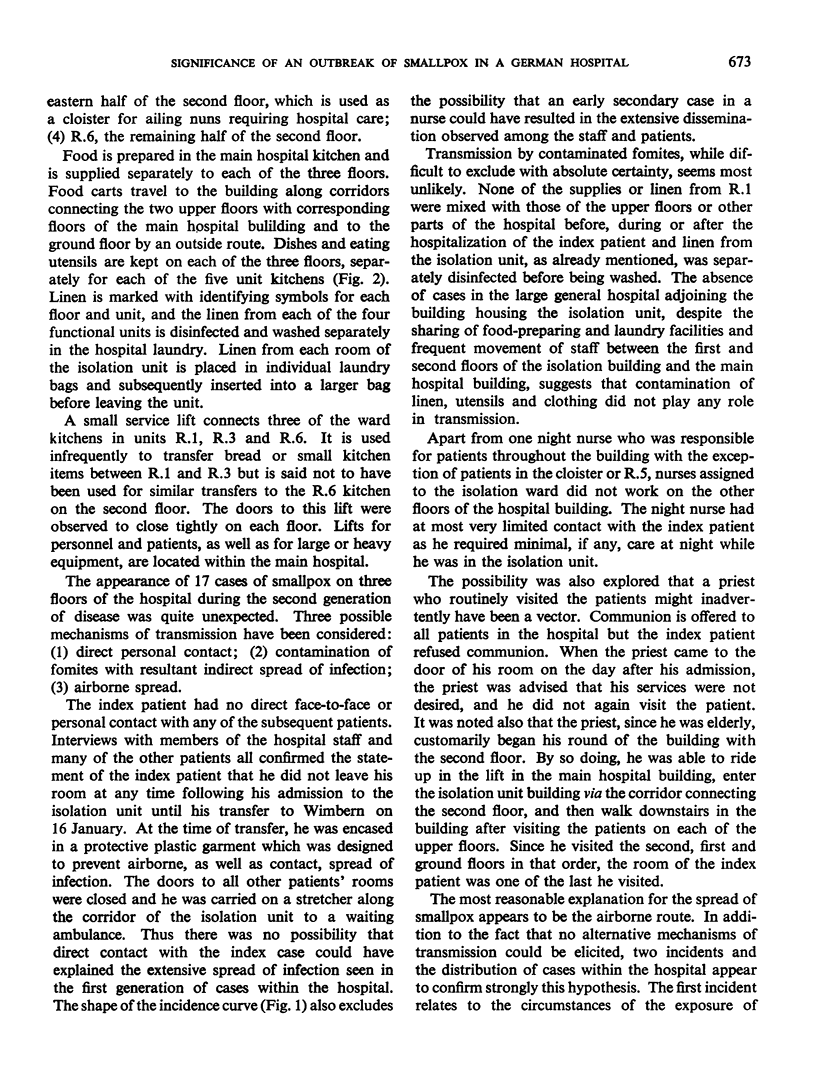
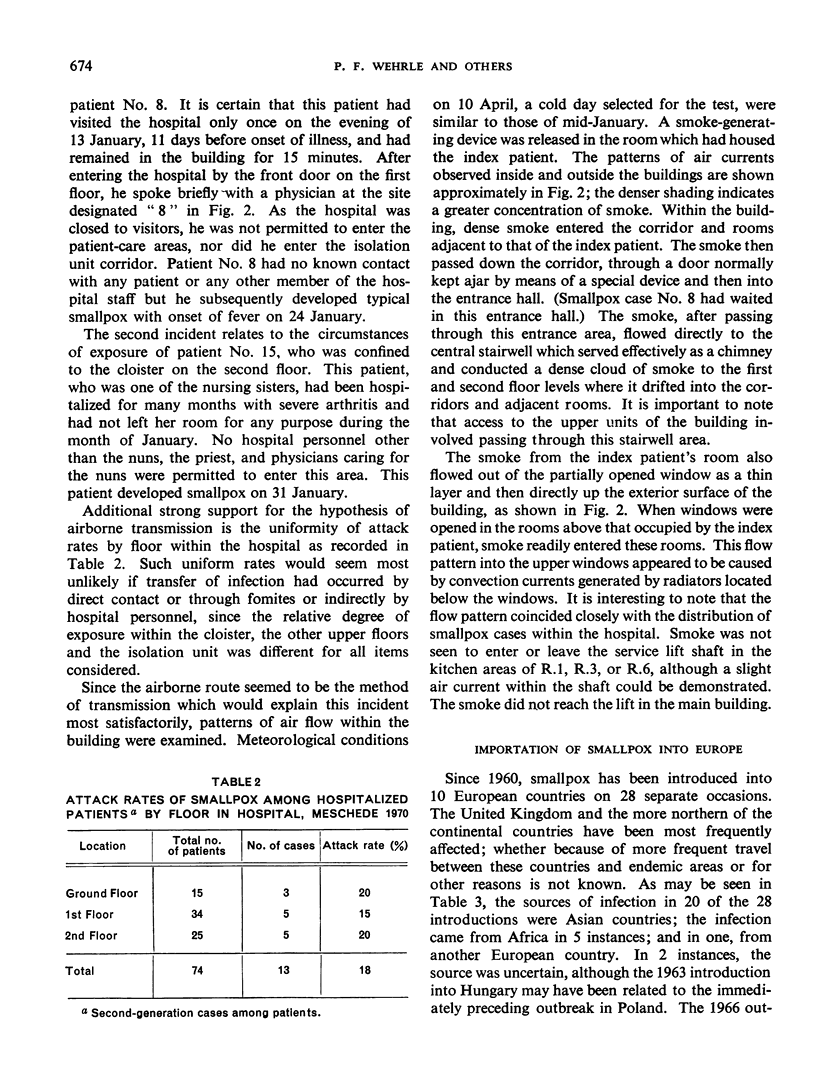
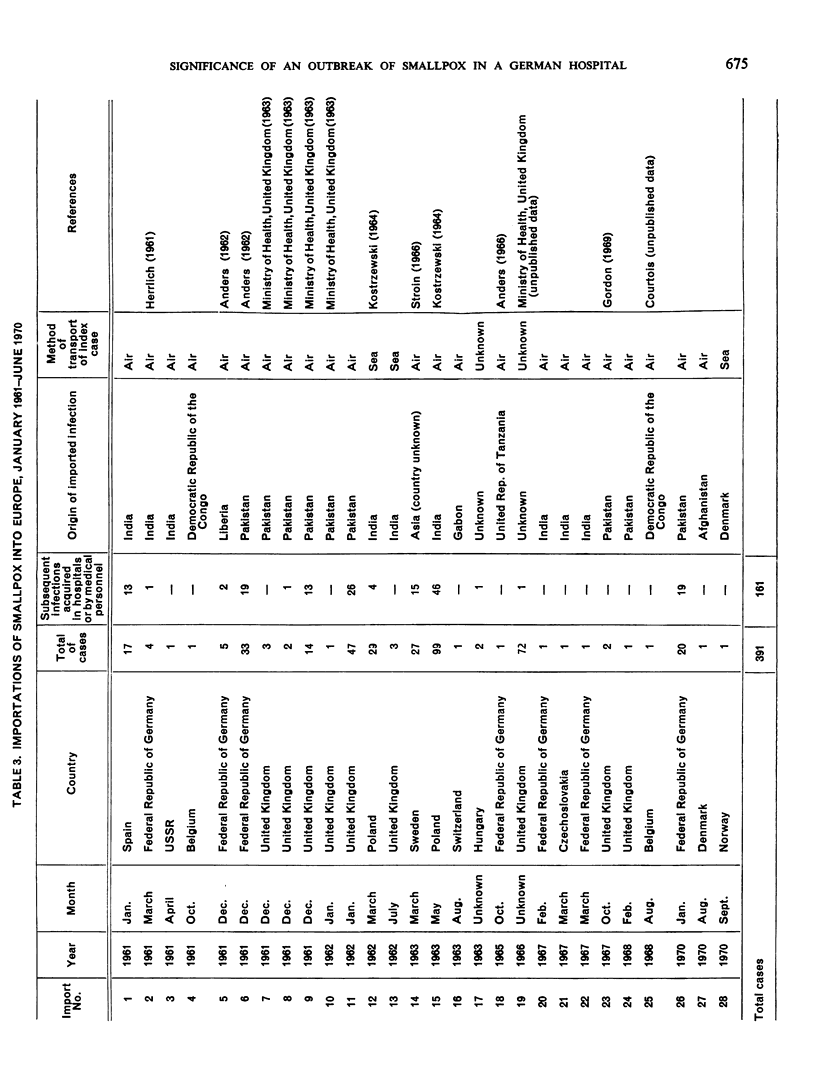
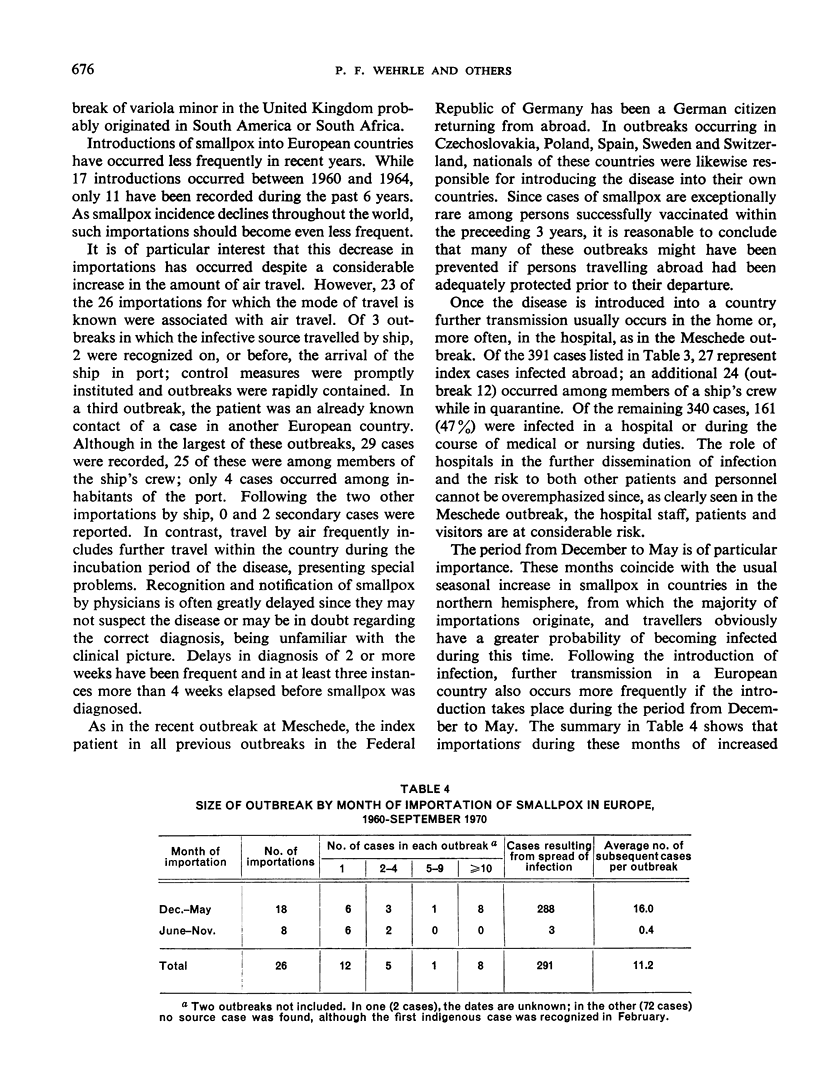
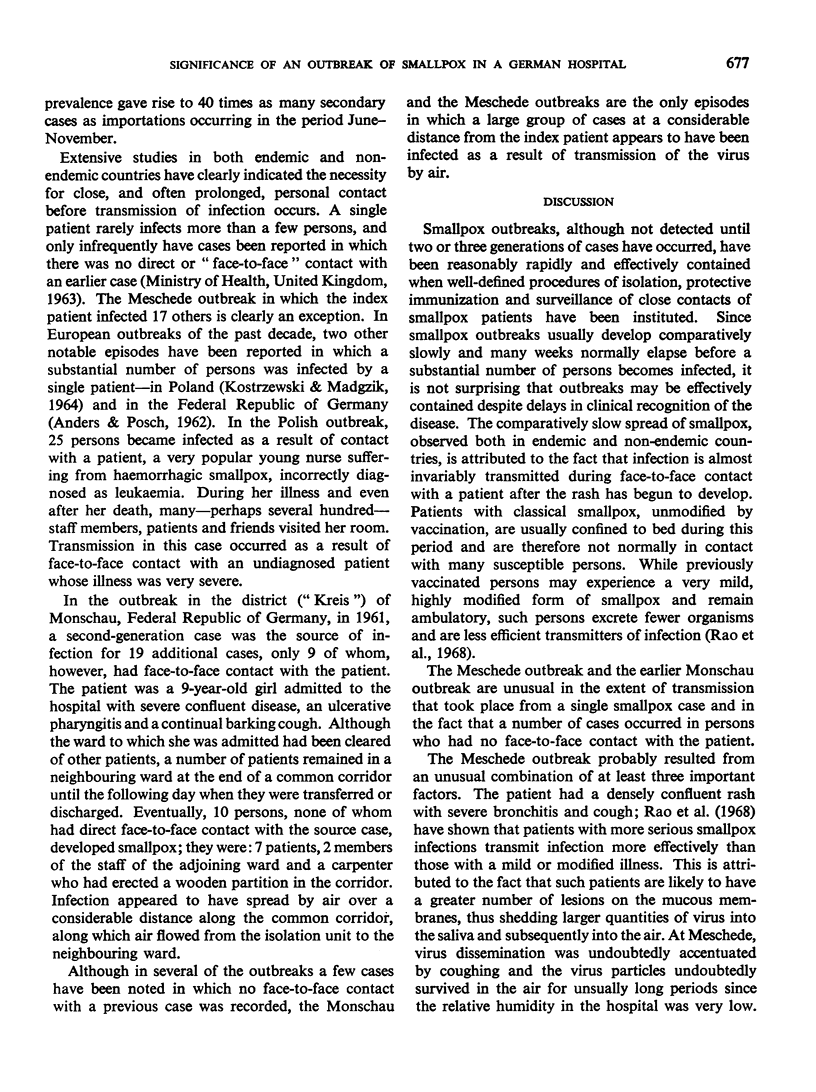
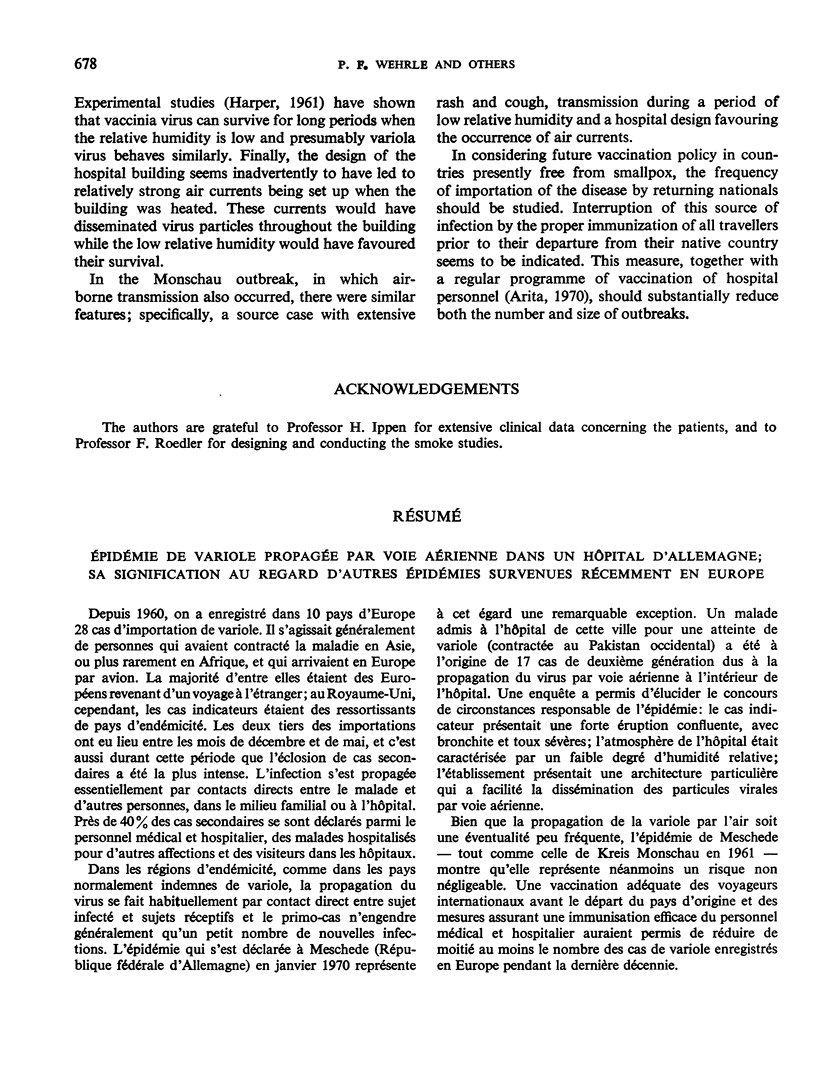
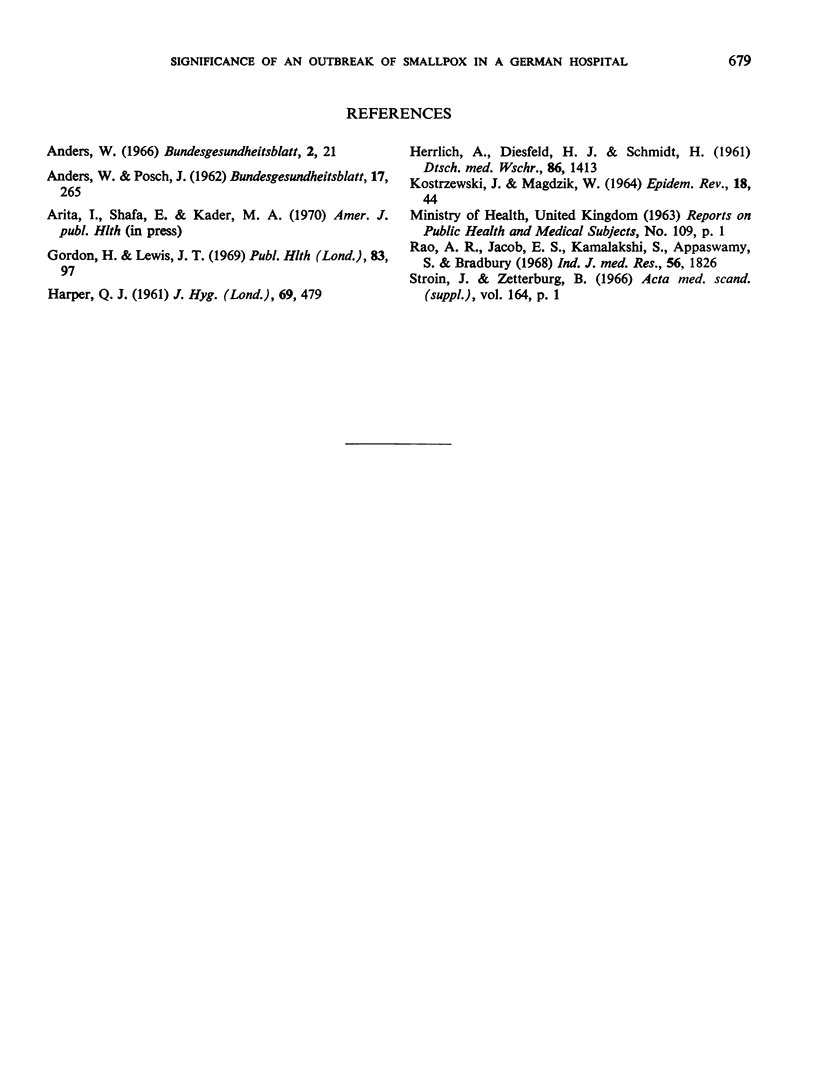
Selected References
These references are in PubMed. This may not be the complete list of references from this article.
- HARPER G. J. Airborne micro-organisms: survival tests with four viruses. J Hyg (Lond) 1961 Dec;59:479–486. doi: 10.1017/s0022172400039176. [DOI] [PMC free article] [PubMed] [Google Scholar]
- HERRLICH A., DIESFELD H. J., SCHMIDT H. [Smallpox in Ansbach 1961]. Dtsch Med Wochenschr. 1961 Jul 28;86:1413–1420. doi: 10.1055/s-0028-1112951. [DOI] [PubMed] [Google Scholar]
- Rao A. R., Jacob E. S., Kamalakshi S., Appaswamy S., Bradbury Epidemiological studies in smallpox. A study of intrafamilial transmission in a series of 254 infected families. Indian J Med Res. 1968 Dec;56(12):1826–1854. [PubMed] [Google Scholar]


